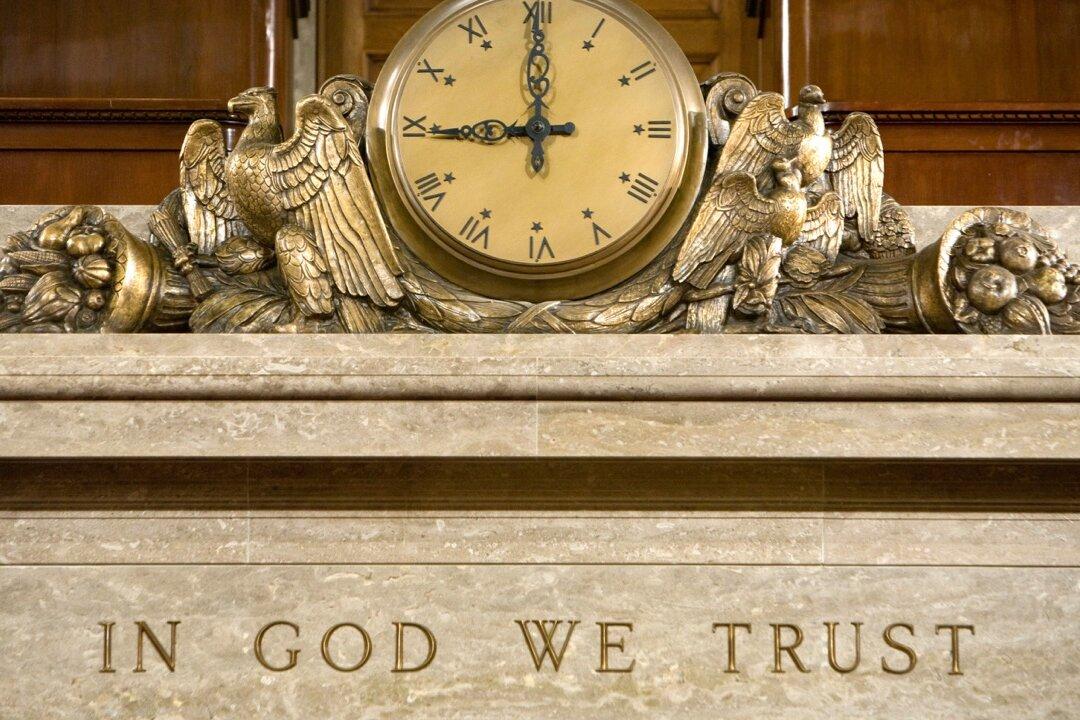A newly introduced bill in Pennsylvania would let schools display “In God We Trust,” the nation’s motto, if they so wished.
The bill, House Bill 1602, was introduced on Sept. 24 and is sponsored by state Rep. Cris Dush, a Republican.


A newly introduced bill in Pennsylvania would let schools display “In God We Trust,” the nation’s motto, if they so wished.